[Enjoy this guest post by Angela Jorgensen! – Ed.]
He’s sexy. He’s the ultimate male, with a British accent to boot. He is larger than any one man, the protagonist of a decades-long international hit franchise. His name is Bond, James Bond. Or, perhaps he doesn’t have a name, and just goes by “The Doctor.”
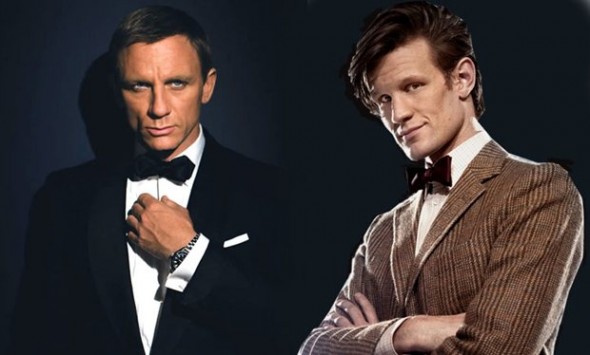
James Bond and Doctor Who are two long-running franchises that share several traits. They are franchises built around a male protagonist who is portrayed by many different actors without restarting the continuity every time the role is recast. The protagonist in each franchise is quintessentially British, to the degree that the notion of casting a non-British actor is heresy to fans of the franchise.
Both of these franchises frequently replace the leading actor portraying the protagonist. These replacements don’t come with reboots or re-launches; a new leading man is simply dropped into the same universe as his predecessor, with the same continuity. Both franchises are pretty light on continuity, but what little continuity there is will carry over from one season/film to the next, and from one actor to the next.
The most oft-cited evidence for continuity in the James Bond franchise is that he gets married at the end of On Her Majesty’s Secret Service, and that marriage is referenced in later films The Spy Who Loved Me and For Your Eyes Only, albeit obliquely. In addition, the actors who play Bond’s cohorts M and Q will stay the same even when Bond is re-cast. Likewise, from the premiere to the current time, The Doctor has had the same back story and history throughout the series.
This unique trait of keeping multiple male actors while remaining in one continuity seems to be unique to these two franchises. The closest approximation I could find in American popular culture was super-hero movies, which will sometimes replace the actor without rebooting the franchise (such as the 1990s run of Batman movies), but those instances are rare, and aren’t as long-running as either Bond or Who. So what is it about these British programs that leads them to share so may traits?
Perhaps the better question to ask would be to look for parallels in the real world. So what is British, long-running, and features a line of interchangeable actors doing the same role, the majority of whom are male?
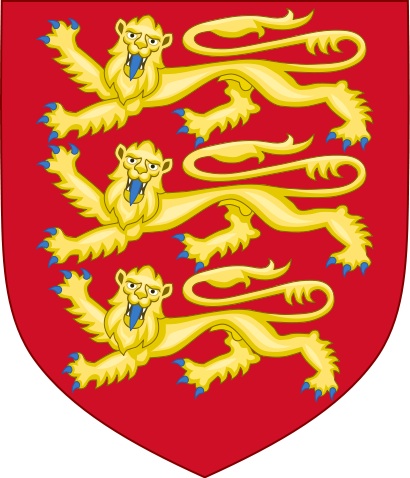
The British monarchy can be traced back over a thousand years – making it just as old as The Doctor’s in-universe age. It’s a patriarchal system, and even though the UK now has a constitutional monarchy whose political power is greatly limited, the royal family still plays a prominent role in British culture.
This is distinctly different from the American political system, which is aggressively individualistic. Presidential candidates are more than just extensions of their party platforms – candidates have to be attractive, charismatic, and their family and personal life is subjected to just as much (if not more) scrutiny as their stances on the issues.
The protagonist-British monarchy connection was probably not originally intentional on the part of the creators of either James Bond or Doctor Who. Sean Connery made the decision to leave the Bond franchise, essentially forcing the studio to re-cast the role or terminate the series (and he returned for one more movie after “retiring.”) Doctor Who famously invented the premise of the doctor regenerating as a way to continue the series after the first actor decided to quit the show due to health problems.
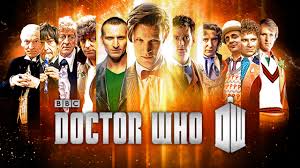
Regardless of whether the parallel was intentional, reception of both franchises has been roughly consistent with the approval rates for the British royal family.
The lowest-rated James Bond movies, as well as the lowest ratings for Doctor Who (which led to a nearly 10-year long hiatus for the latter) both came in the late eighties and early nineties, which coincides with a time of great unpopularity for the royal family: a time when it was beset with scandal due to Princess Diana’s bitter divorce and death. Likewise, Doctor Who and the James Bond series have experienced an upswing in popularity in the late 2000’s and early 2010’s, a time which has also seen record high approval ratings for Queen Elizabeth II, spurred in part by a royal wedding, a royal birth, and Elizabeth’s Diamond Jubilee last year.
So, even though the programs may not intentionally try to write their protagonists so as to directly represent British political figures or royalty, the public may respond to the idea of a long-term British authority with the same acceptance that they apply to literal British royalty.
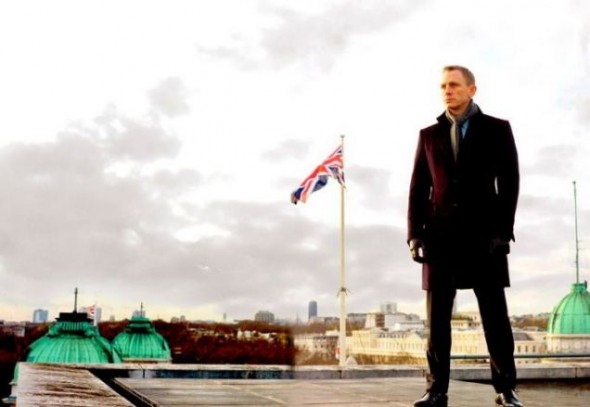
Despite this link, The Doctor and James Bond don’t seem to be direct allegories for actual members of British royalty. Initially, I thought the Doctor/Companion and Bond/Bond-girl relationships were meant to be representative of the royalty/subject relationship, but despite some surface similarities, this relationship doesn’t bear under scrutiny. The evolving relationships between the protagonist and female support draws more from the evolving role of women from the early sixties onward than it does from any dramatic shifts in power between the royal family and its constituents in the last fifty years.
Rather than commenting on specific changes in British government, these franchises instead seem to stem from the idea of a monarchy. For centuries, the British royal family has been a government figurehead, with the real power lying in the hands of parliament, but they have represented an ideal of British government. It is this ideal, which may not exist in real-life, that Bond and Who represent, rather than any actual legislation or figures.
In addition, Bond and Who are both franchises that resist any overly-political messages. The nature of storytelling requires that sometimes, the programs have to take a stance, but the surface-level message of these franchises is usually non-controversial: terrorists and killers are bad and need to be stopped, genocide is wrong, victims of malevolent attacks should be protected and helped. These are stances that can be palatable to either side of the political spectrum, and resist any clear parallel to existing governmental figures beyond what a view may choose to project based on his or her own political stance. Of course, this, too, can serve as another connection to the royal family: since their position is mostly ceremonial, many royal figures have avoided publicly revealing their political leanings.
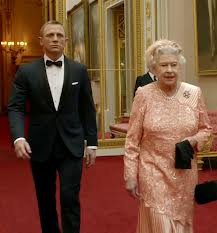
Even though Doctor Who and the James Bond franchises are not inherently political, they reflect the important role that the British monarchy plays in the world of the citizens of the UK, making for some unique traits that set these apart from anything made in the US.
Angela Jorgensen originally hails from Iowa. She currently resides in Los Angeles and aspires to write for hour-long television dramas. For the politically-minded Overthinker, check out the page for her documentary feature, The Longest Straw, currently in development.
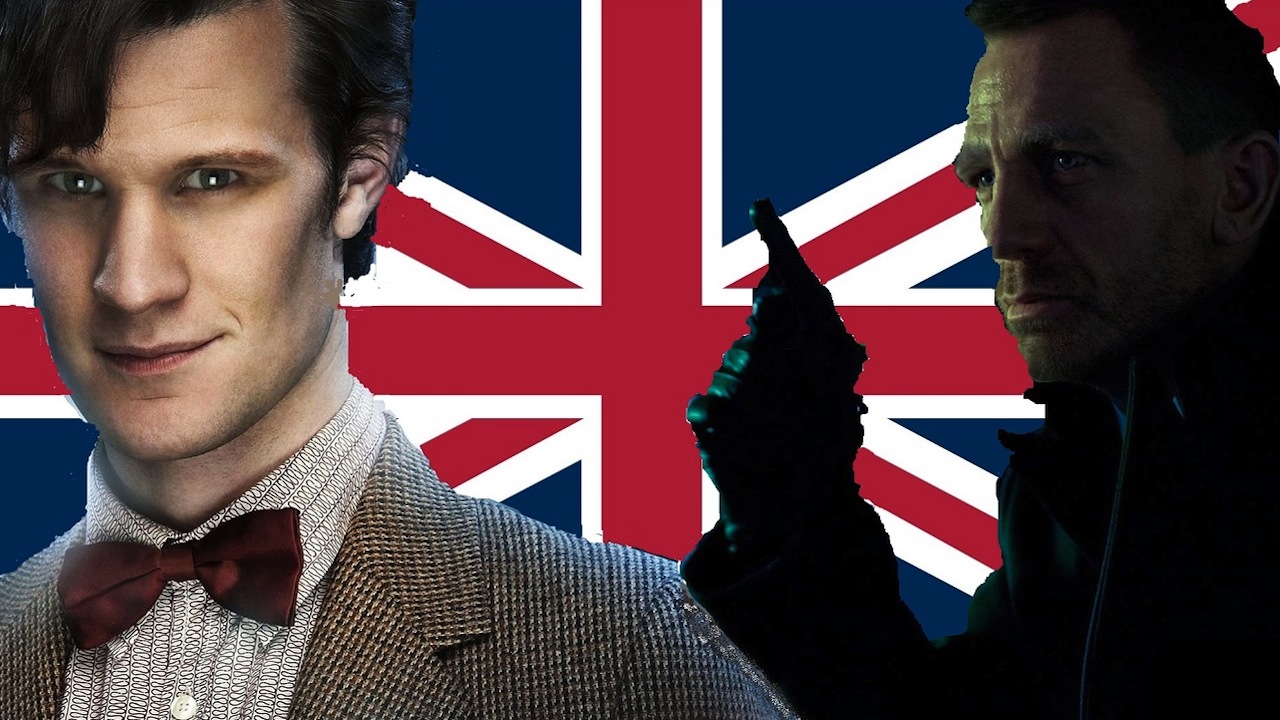
Interesting, though I disagree; I think you’re overestimating the British regard for the royal family. British politics are not really that much more stable or continuous than American politics just because they have a constant figurehead.
I would posit that the British way is not an abnormality arising from the monarchy, but that the American pattern of rebooting a franchise completely every time the star retires comes from our obsession with origin stories. America loves to talk about its beginnings in a way that Britain doesn’t. Perhaps because they’re recent enough for us to remember them more clearly, perhaps because we lack the inertia in our national identity that the British have built up over the centuries, America tends to like telling its own and other origin stories much more than Britain does. The British method of sustaining long running franchises past the tenure of one actor actually seems to make a little more sense than the American method. Serialized fiction that doesn’t suffer from this constraint, like long running book and comic series, generally tends to follow one story line (though Marvel’s recent restart is an exception) without constantly rebooting, so it makes a bit more sense to keep the same man or job title with a different face and continue telling a story then it does to kill Batman’s parents over and over again. I think the way American superhero movies are constantly retelling their origins is odder and more indicative of a national culture than the constancy of James Bond and Doctor Who.
Fun timing. An extremely similar conversation is going on at io9 right now. I tend to agree with the commenters that say Doctor Who is essentially British because of its post-colonial tendencies. The Doc bungles into “lesser” societies that are in some way “wrong,” uses his superior intellect and breeding (he is a lord, remember) to dismantle the civilization, and runs away before he can get a look at the damage he did. This is one of the reasons I’m fond of RTD’s era: he lampshaded this tendency frequently, especially in the first series.
Contrast American franchises, which are much more Manifest Destiny — “boldly going where no one has gone before” and so on. When our heroes take down other civilizations, they tend to do so with big guns, which is the American Way. And as Liza just said, we loooove origin myths.
I’m going to apply Occam’s Razor, and say that the reason Doctor Who and Bond are British, is because it’s made in Britain, by British people, for British people. Does it have a large international audience? Sure, but so do many American shows and other media.
Saying it’s because “Doctor Who is essentially British because of its post-colonial tendencies” just seems poor attempt to complicate the issue in-order to change the character for political correctness.
Also, the reason he “runs away before he can get a look at the damage he did”, is because this is a simple family oriented show. A show about a time traveling alien helping other alien species. I would argue that he leaves them better off then before he came and solved their planet destroying problem, because it’s a family oriented show meant to offer escapism for an hour or so.
That’s true but I don’t think the argument is about why Doctor Who is British. The argument is about whether his Brtishness is an irreplaceable part of his character. I would say it is. but that that doesn’t mean he can’t be portrayed by an American actor, or really an actor of any race, nationality or sex. What defines characters is what they do, and as long as the character continues to do the same things the Britishness inherent in his actions will continue to be a defining aspect.
I started watching Doctor Who with the Davies era, and so that lampshading and the way the Doctor is framed (frequently sympathetic to the underdogs, cultural relativist, etc) is an important part of who the Doctor is for me. Going back and watching the first (1960s) Doctor, it was shocking just how unabashedly colonial he was! Very much the superior professor, disdainful of ignorant natives – although at least he treated contemporary Earth with about as much disdain as he did older cultures that were portrayed, heh. Still, it’s nice to see the development in what is considered to play to current sensibilities (let’s just not talk about Moffat).
I think Liza makes a good point though, the United States has a very distinctive cultural bent on these things (individuality, specialness, manifest destiny) and I think it shows.
Jack Ryan’s been played by four different actors over five films.
Bond is really no different than Ryan, or even the 90s Batmans (Batmen) that you references, there’ve just been more movies. What makes Dr Who stand apart is that the switch in actors is explained in-universe.
If at some point in the film series “James Bond” had been revealed to be nothing more than a code name for an operative in a specific role rather than a real person, then you’d have an argument. But, alas, they never did.
http://tvtropes.org/pmwiki/pmwiki.php/Main/TheNthDoctor
http://tvtropes.org/pmwiki/pmwiki.php/Main/TheOtherDarrin
http://tvtropes.org/pmwiki/pmwiki.php/Main/SuspiciouslySimilarSubstitute
This happens a lot, to be honest. Remembering that one of the main limitations on live-action TV/movies is that actors age/die/have other commitments.
What sets Doctor Who and James Bond apart is not that they change actors, but that they’re so phenomenally popular that they’ve lasted long enough to do it multiple times. And even then, it has something to do with the nature of their world-building: Doctor Who is a show about a time-traveler who stops bad guys (with a companion), James Bond is a series of movies about a spy who stops bad guys (with a hot girl). Beyond that, everything is negotiable. We expect to see Bond and the Doctor in completely new, unfamiliar surroundings each time. The only regular supporting cast is the companion in Doctor Who, and maybe M and Q/R in Bond (no Bond girl lasts multiple movies, iirc). And all this was established well before the first change of the main actor in each franchise. Compare this to your average soap and most other shows, where everything is reasonably permanent. Always the same place, same characters in same relationships, etc.
So Doctor Who and James Bond found themselves being entirely about one guy, with everything else changing quite frequently. But popular and successful enough (in their respective areas, ofc) to want to continue. With no real ties of anything to the main character, why not just change him as well?
This seems similar to the tradition in super hero comics of replacing well known characters with other characters who take the same name (see current Ms Marvel). It seems to be done for reasons of trademark and brand recognition. I would argue the same thing is happening here. The James Bond brand cannot be continued with the same actor in perpetuity(as the things the character does require a certain age range and actors tend to age and die) so to maintain the value of the brand actors are replaced. Maybe it doesn’t happen as often with in America because Americans are more likely to associate actors with the characters they portray. But the same sort of perpetual milking of a brand has been going on for as long as storytelling. See Gilgamesh and the various retellings reinterpretations, etc. Granted those stories do not have the continuity between them that Dr Who does. But they probably have about as much common continuity as the James Bond stories. For an American version of Brand milking with tighter continuity see the aforementioned Superhero comics.
I’m new to American comics so someone else here is probably more of an expert, but my understanding of the new Ms Marvel was that it was due to an… internal promotion. That is, the person who was Ms Marvel has for reasons of plot taken up a new established identity, and so there’s an opening for a new character. This seems to happen a lot – characters grow up and take their own names (Robin -> Nightwing), change their styles or images for personal reasons (Speedy -> Arsenal), or fill the shoes of a character who is killed off. It certainly doesn’t hurt brand recognition, and it lets you use something established to do something new (Kamala Khan is a good example).
Retelling of myths is the same but again different. I’ve been meaning to make a Greek myth/superhero comics comparison post for a long while now!
It’s true Ms Marvel is now Captain Marvel (taking the name of another, even older superhero, so it’s more like she grew up and took a dead guy’s name) but there’s no plausible reason external to the universe for naming a new superhero Ms Marvel other then the brand recognition. Ms Marvel is a new character so it’s not so much outgrowing a name in her case as choosing a name as a homage. Frequently in superhero comics there will be multiple character with the same name, often they are reinterpretations of the original. Ghost Rider for instance went from being Johnny Blaze to Danny Ketch in the 1990’s and there is now a new character being introduced who is going to be neither of them. And the name of Ghost Rider himself is the name of a character who appeared in Western comics published by marvel and a recurring villain for the West Coast Avengers. Unlike the mythical re-invention of characters (such as the various versions of Odysseus) the new superheroes stories are all in continuity with the previous owners of the name (at least in Marvels case).
I think retelling myths is comes from the same fundamental place as having an eternal ever changing character. There’s not only the brand recognition, but the urge to improve on previous version, to leave your stamp on it,and more, to add something to mythology that will outlive you.
“The protagonist in each franchise is quintessentially British, to the degree that the notion of casting a non-British actor is heresy to fans of the franchise.”
Well, to be fair, Pierce Brosnan is Irish…
Connery is Scottish, Moore is English (London), Dalton turns out to be Welsh, Brosnan is Irish, and Craig is English (the part outside London). So he is quite representative around the British Isles.
Oh, and Lazenby is Australian.
Forgot about Lazenby! Anyway, English, Welsh and Scottish are all (currently) subsets of “British”. Irish is not. Not that it makes a difference, just a semantic note on the original article.
I don’t think these franchises are connected to the monarchy directly as much as they are conservative, and through that indirectly tied to the monarchy. Both franchises are patriarchial, but they are also paternalistic in the sense that the stand in for authority is nigh infalliable, while all the other characters are more like sidekicks than companions (pun intended).
The Doctor’s relationship to his companions isn’t a partnership. He calls the shots, he has all the answers and they are just foil for him to play off of. Likewise, neither Bond nor his supposed superiors act according to rank. He just does pretty much whatever he wants and MI6 can’t do anything about it (this is a pattern that was made especially clear when M became a woman), but somehow he always ends up being in the right anyway. These set ups are about as far from egalitarianism you can get, which matches rather well with both conservative and royalist ideas. This connection was made clear in the conservative bonanza that was Skyfall, but it there should be cues in other James Bond movies and Doctor Who episodes as well (especially considering that Moffatt isn’t exactly the progressive type)